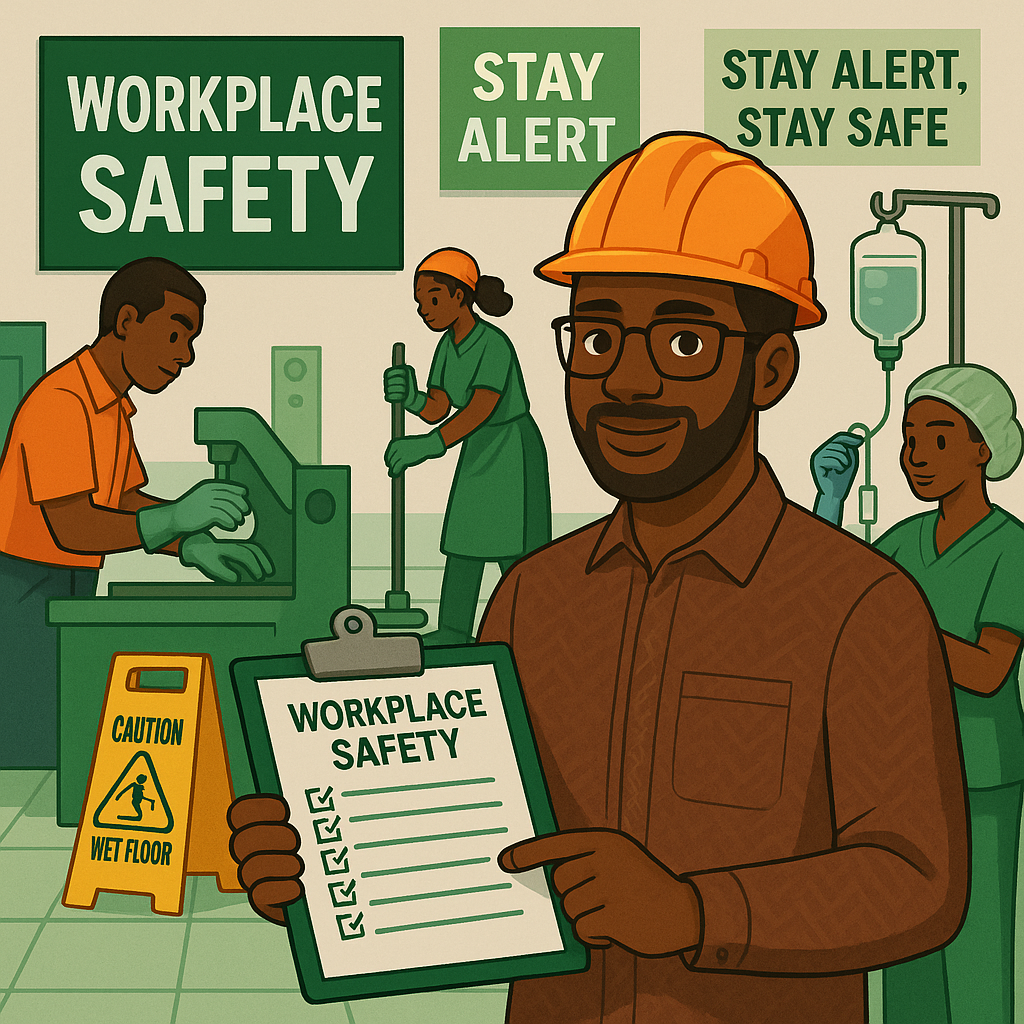Accidents at work happen more often than you think. In fact, there are about 3 million of them around the world each year. Nigeria is not a good place to have an occupational accident since we have a poor habit of implementing laws. Consider that there is no job without hazards. So regardless of your job type, read on to know the health hazards in your workplace and how to take caution.

Understand the Risks at Your Workplace
Different jobs have different dangers. These dangers have been grouped into various kinds of hazards:
- Biological: Microorganisms, plants, or animals that could affect your health.
- Chemical: Any harmful chemical or chemical compound.
- Mechanical: Moving machinery or tools that put a worker at risk. Factory workers, construction workers, and farmers are particularly exposed.
- Ergonomic: Strain on body posture due to unhealthy working positions. Many people are at risk, from farmers hunched over their farms to office workers slouched on uncomfortable chairs from 9-to-5.
- Physical: Dangerous sources of energy such as heat, noise, or vibration.
- Psychosocial: Threats to mental health at work ranging from bullying and stress to low job security.
You should think systematically and identify what hazards your job exposes you to. As a doctor, I am exposed to biological hazards of hospital-acquired infections from contact with bodily fluids. Chemical hazards include formalin, latex, and various drugs I handle daily. My mechanical hazards include needle-prick injuries; ergonomic hazards—hunching for surgical procedures; physical hazards—noise, radiation in the X-ray room; psychosocial hazards—stress and poor patient outcomes. Think about your work. What are your own hazards?
Simple Safety Habits That Save Lives
When you identify the work hazards you are most exposed to, you can then build simple habits to protect yourself:
- Wear proper gear (helmets, boots, masks, gloves). Follow instructions and safety signs.
- Wash your hands after coming back home from work. Walk around occasionally during work to relieve postural strain. Get a good ergo nomic chair if possible.
- Join a support group to relieve psychosocial stress.
- Report hazards immediately.
- Take short breaks to avoid tiredness.
- Very importantly, speak up boldly about hazards so your employer can take responsibility.
- Employers themselves must also provide training, supply safe equipment, and maintain a clean, organized workplace.
Conclusion
Workplace safety is not a luxury—it is a right and a responsibility. Stay alert, protect yourself, and encourage your colleagues to do the same. Your well-being is worth it!
Want to learn about environmental health? Read our post on the impact of deforestation on our health here!









